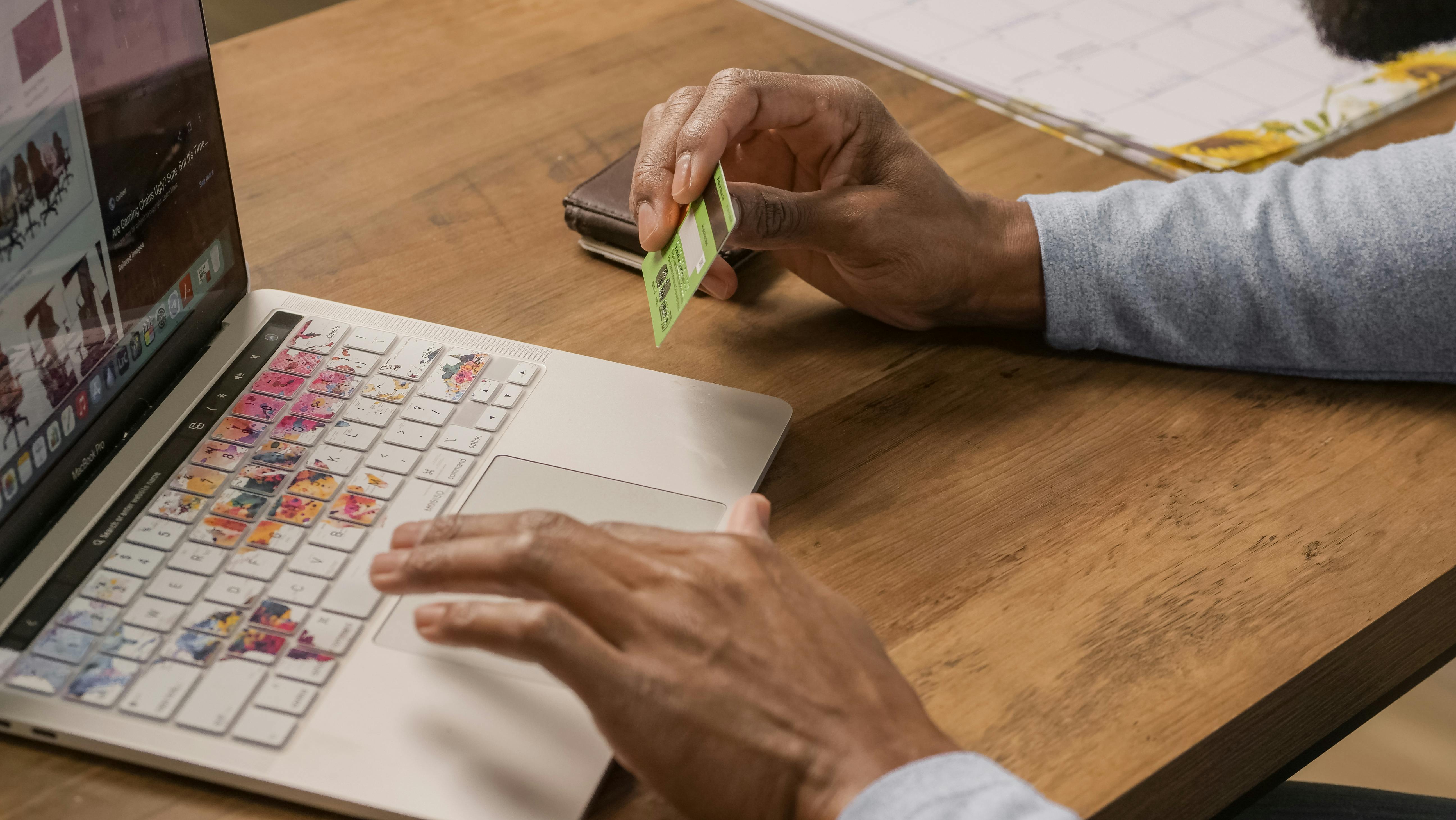
Navigating the world of credit is a very new thing for many people in their 20s. It’s something we will all have to worry about, but it is a topic that not many people are informed about off the bat. The hope is that by the end of this article, you have a better idea of how to use a credit card responsibly, inturn building your credit score and avoiding any debt possible.
The Basics of a Credit Card
What is credit?
Credit (n) – a contractual agreement in which a borrower receives a sum of money or something else of value and commits to repaying the lender later, typically with interest.
When you get a credit card, you are given a maximum amount that you are allowed to borrow at any given time. This is called a credit limit. The amount that you are able to borrow is often determined by your income, credit history/duration, and your credit score, which we will get into next.
What is a credit score?
Credit Score (n) – a three-digit number that rates your creditworthiness. FICO scores range from 300 to 850. The higher the score, the more likely you will get approved for loans and better rates.
Your credit score is based on a variety of factors like how many cards you have open, along with the age of each card, the credit card utilization of each card or your overall access to credit, payment history, debt to income ratio, and more. To learn more about the details of how a credit score works, click here to read more from Investopedia.
Credit scores are graded based on the range they fall into. FICO’s credit score ranges are as follows:
- Exceptional: 800 to 850
- Very good: 740 to 799
- Good: 670 to 739
- Fair: 580 to 669
- Poor: 300 to 579
You obviously want to have the highest score possible and make sure that you stay in the ‘good’ range at the very least. Anything below that and you can run into issues with future loans, qualifying for an apartment, and more. A low credit score can also affect your cost of car insurance. Make sure you watch this carefully.
The #1 Rule of ALL Credit Cards
You HAVE to pay it back. I know this may seem obvious to some, but this is not something that everyone understands. Just because you have access to spend the money, you MUST remember that it is borrowed money. You have to give that money back to the people you borrowed it from, ie the bank. Otherwise, you owe interest.
Interest (n) – is the charge for borrowing money, typically expressed as a percentage of the principal amount borrowed.
This is where people find themselves in trouble. Your interest amount is based off of the APR (annual percentage rate). As of December 2024, the average credit card APR is 20.37% . That means, if you don’t end up paying off your card in full by the end of the statement date, you’re looking at a nice added charge for borrowing. This is where people get into a pickle with credit cards.
Yes, there is something called a minimum payment (the minimum you have to pay every month to be in good standing on your card), but paying this doesn’t mean that you avoid interest. It just means that you won’t receive a negative hit to your credit card like you would if you did not pay the minimum balance. The only way to avoid paying interest is to pay off your credit card bill in full at the end of every month.
The Gnitty Gritty of How to Use a Credit Card Responsibly
1. Keep an Eye on Your Spending
It’s really easy to get swipe-happy with a credit card. This is where you have to make sure you are disciplined enough to own a credit card. If you find yourself in a constant pickle of your credit card bill being higher than the money in your checking account, you’re going to find yourself in a bind sooner than you think. Keep in mind, that interest compounds a lot faster than your paycheck increases. Make sure you are keeping an eye on how much you are spending and cut back if necessary.
2. Pay off Your Credit Card BEFORE It’s Due
If your credit card balance is due on the 30th, pay it off on the 20th, or better yet in 2-week intervals. This will help you in two ways:
- You’ll get a nice mid-month pulse on how much you have already spent for the month.
- You will likely see a positive impact to your payment history, as you are constantly paying off what was borrowed well in advance.
Sometimes life moves fast and we lose track of the days. The last thing you want to do is mistakenly miss a credit card payment. The best way to ensure this doesn’t happen is to set a recurring reminder on your phone, but more importantly, set up automatic payments from your checking account. With most major credit cards, you can set this up with an automatic full balance payment, or a set payment amount. That’s up to you and what you think is best for your situation. The most important thing is that your card is being paid off. This is the best way to avoid debt as well.
 3. Use Your Bills to Your Advantage
3. Use Your Bills to Your Advantage
If you are responsible with your credit card, this might be a great way for you to get a nice kickback from paying the bills you already owe. Utilizing a rewards credit card can give you points that you can use for airfare, hotels, points on eating out, and more. Every card has different offerings, so it’s important for you to figure out what card is best for you and your lifestyle.
With this in mind, why not put your recurring bills on your credit card? These can be bills like your phone bill, your renter’s insurance, your subscription services, etc. Paying them on your debit card gives you no perks, but paying them on your rewards credit card will give you points toward something you would enjoy a lot more.
Again if you are someone who tends to have a higher balance du on their credit card than the number in their checking account, then this might not be the best option for you. It’s best that you focus on better credit card habits than trying to focus on how to squeeze points out of existing bills.
4. Stay Under 30% CCU
CCU (n) – stands for credit card utilization.
Your CCU can have a much bigger impact on your credit score than you may think. A high CCU can often be connected with overspending or being over-leveraged. Remember your credit limit is also determined by your income, so you’re given a credit limit that is partially based on what the bank thinks you can pay back every month. If you are getting to 90% CCU every month, the odds are higher that there will be a carry-over balance month to month, which is not a habit we want to get into with a credit card. Staying under 30% CCU also shows that you can be responsible about paying off your card balance and managing your finances.
An example of CCU:
Credit Limit: $1,000
Credit Card Balance: $851
CCU = 851 / 1,000 = .851 or 85% Credit Card Utilization. This is way above the recommended 30% and below.
5. Other Random Benefits of Credit Cards
Although many of the benefits of a credit card seem very obvious, there are some perks of purchasing a credit card that aren’t as widely spread. These benefits do not apply to all credit cards, but some major credit card companies do offer these benefits. Some of the random benefits of credit cards are as follows:
- Protection insurance on technology purchases
- Extended warranties
- Fraud protection
- Free TSA, Clear, and Global Entry
- Travel concierge
- Credit monitoring
- Cashback
- Waived food delivery service fees
- Airport lounge access
If any of these seem appealing to you, it might be something to look into during your search. Again, every card is different, but it’s worth looking into!
Credit cards can be super useful when used correctly, but if you are not responsible with them, you can find yourself in a pickle VERY quickly. Make sure you know what you are getting yourself into. It is critical to instill good credit card habits off the bat to stop you from getting on a slippery slope. Make sure you do your research before signing up for a card. You can also go in person and talk to a banker at your local branch to figure out what card is best for you. Whatever you do, make sure you do it with care. Learning how to use a credit card responsibly in your 20s will have a huge impact on your borrowing abilities and overall financial wellness later in life. Make wise choices and be responsible.
Sources
Team, Investopedia. “Credit: What It Is and How It Works.” Investopedia, 1 Oct. 2024, www.investopedia.com/terms/c/credit.asp.
“What Is a Credit Score? Definition, Factors, and Ways to Raise It.” Investopedia, 21 Sept. 2024, www.investopedia.com/terms/c/credit_score.asp.
Chen, James. “Interest: Definition and Types of Fees for Borrowing Money.” Investopedia, 19 Sept. 2024, www.investopedia.com/terms/i/interest.asp.
Rossman, Ted. “Current credit card interest rates.” Bankrate, 4 Dec. 2024, www.bankrate.com/credit-cards/advice/current-interest-rates.
NOT FINANCIAL ADVICE
The Content is for informational purposes only, you should not construe any such information or other material as legal, tax, investment, financial, or other advice. Nothing contained on our Site constitutes a solicitation, recommendation, endorsement, or offer by Our So Called 20s or any third-party service provider to buy or sell any securities or other financial instruments in this or in any other jurisdiction in which such solicitation or offer would be unlawful under the securities laws of such jurisdiction.
All Content on this site is information of a general nature and does not address the circumstances of any particular individual or entity. Nothing in the Site constitutes professional and/or financial advice, nor does any information on the Site constitute a comprehensive or complete statement of the matters discussed or the law relating thereto. Our So Called 20s is not a fiduciary by virtue of any person’s use of or access to the Site or Content. You alone assume the sole responsibility of evaluating the merits and risks associated with the use of any information or other Content on the Site before making any decisions based on such information or other Content. In exchange for using the Site, you agree not to hold Our So Called 20s, its affiliates or any third-party service provider liable for any possible claim for damages arising from any decision you make based on information or other Content made available to you through the Site.



 3. Use Your Bills to Your Advantage
3. Use Your Bills to Your Advantage

